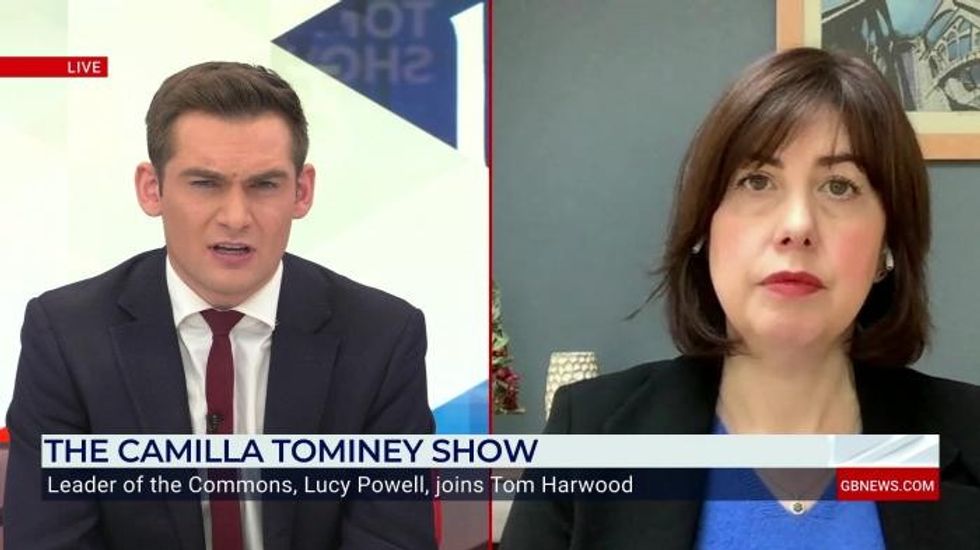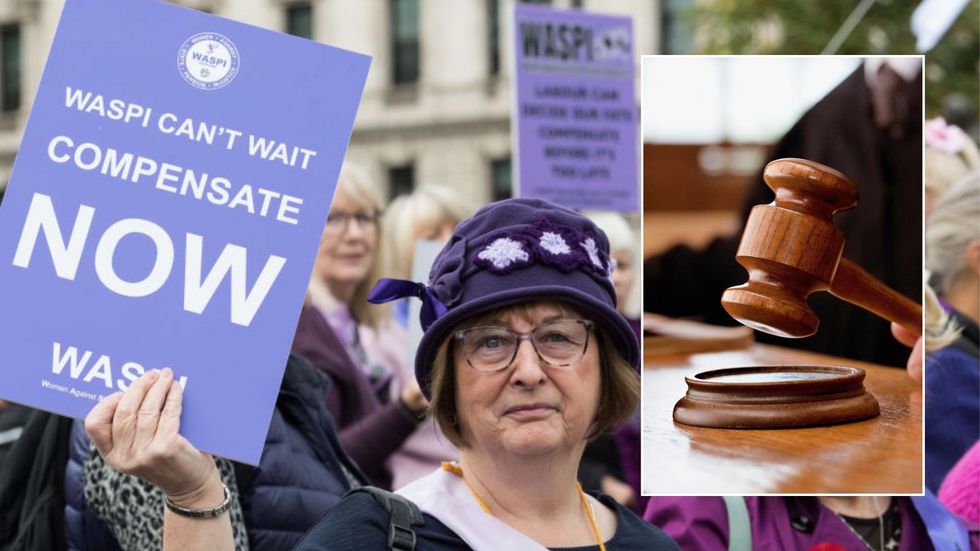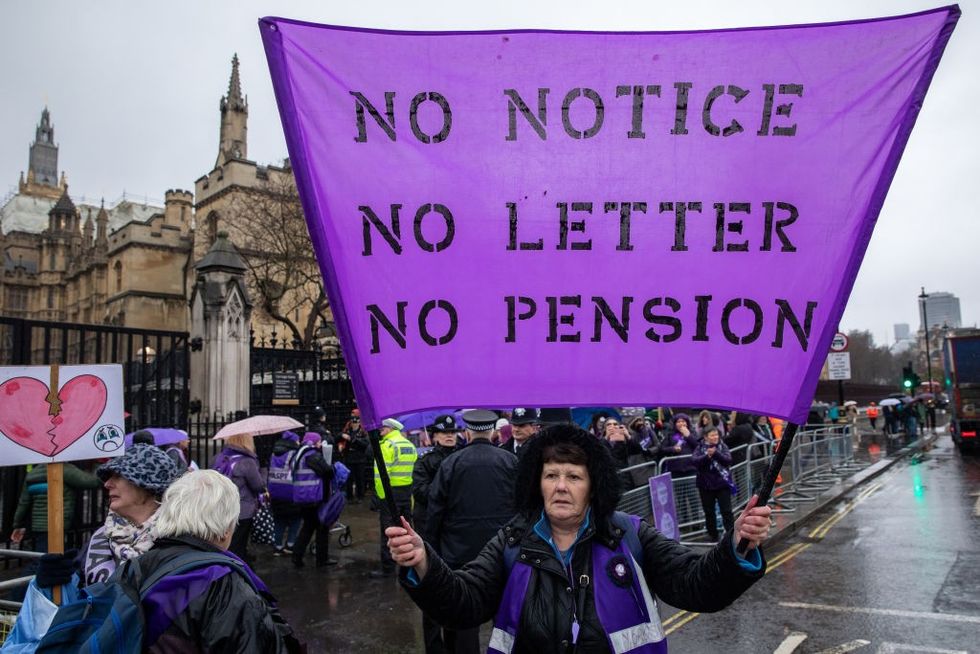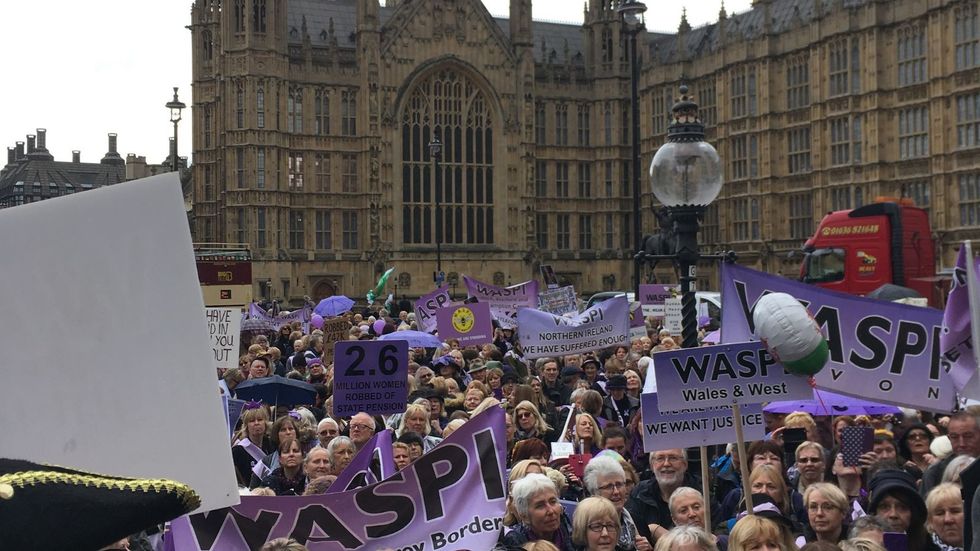State pension age row deepens as Waspi hits 'landmark moment' in legal battle for compensation
Women campaigning over state pension age changes say they've cleared a major hurdle in their fight for justice. The Waspi group described the development as a "landmark moment" in their long-running campaign.Campaigners from the Women Against State Pension Inequality (Waspi) group are pushing for a High Court challenge after the Government rejected calls to compensate women born in the 1950s, who they say were not properly informed about the change in their retirement age.Waspi said it has now received confirmation that its case is considered "arguable", meaning it can move forward toward a court hearing. The group wants a judicial review to force the Government to rethink its decision to rule out financial redress.Waspi chairwoman Angela Madden described the green light in its legal challenge as a "landmark moment in our campaign".She said: "We are grateful for the funds raised so far and understand the country’s purse strings are tight, but the Government cannot be allowed to brush this injustice aside."Back in December 2024, the Government acknowledged there had been delays in writing to affected women and accepted the finding of maladministration from the Parliamentary and Health Service Ombudsman (PHSO). However, ministers ruled out a compensation scheme, arguing it could cost taxpayers up to £10.5 billion and was not justified.The PHSO previously suggested that compensation of between £1,000 and £2,950 per person would be reasonable. Waspi campaigners are now trying to use the legal system to challenge the Government'a decision not to act.Lawyers for Waspi argue that the Government's refusal to offer any form of remedy breaches basic legal principles. They submitted their arguments in February 2025 and have since been waiting for a decision on whether the case could proceed. In addition to the legal arguments, Waspi is also seeking a costs capping order. This would limit the legal costs they would have to pay if they lose, helping protect the group and its supporters from facing an unaffordable bill.Without this protection, the campaign says it may have to withdraw its challenge.The group is continuing to call for public donations to support the case.Tens of thousands of women have backed the Waspi campaign, which argues that women affected by the state pension age rise were not given enough warning to prepare. The change moved the state pension age from 60 to 66 in line with men.Waspi’s legal challenge will now move to the next stage, potentially leading to a full hearing in the coming months.A Department for Work and Pensions spokesperson said: “We do not comment on live litigation.“We have apologised for there being a 28-month delay in writing to 1950s-born women. However, we do not agree with the Ombudsman’s approach to injustice or remedy and that is why we have decided not to pay compensation.”

Women campaigning over state pension age changes say they've cleared a major hurdle in their fight for justice.
The Waspi group described the development as a "landmark moment" in their long-running campaign.
Campaigners from the Women Against State Pension Inequality (Waspi) group are pushing for a High Court challenge after the Government rejected calls to compensate women born in the 1950s, who they say were not properly informed about the change in their retirement age.
Waspi said it has now received confirmation that its case is considered "arguable", meaning it can move forward toward a court hearing.
The group wants a judicial review to force the Government to rethink its decision to rule out financial redress.
Waspi chairwoman Angela Madden described the green light in its legal challenge as a "landmark moment in our campaign".
She said: "We are grateful for the funds raised so far and understand the country’s purse strings are tight, but the Government cannot be allowed to brush this injustice aside."
Back in December 2024, the Government acknowledged there had been delays in writing to affected women and accepted the finding of maladministration from the Parliamentary and Health Service Ombudsman (PHSO).

However, ministers ruled out a compensation scheme, arguing it could cost taxpayers up to £10.5 billion and was not justified.
The PHSO previously suggested that compensation of between £1,000 and £2,950 per person would be reasonable.
Waspi campaigners are now trying to use the legal system to challenge the Government'a decision not to act.
Lawyers for Waspi argue that the Government's refusal to offer any form of remedy breaches basic legal principles.

They submitted their arguments in February 2025 and have since been waiting for a decision on whether the case could proceed. In addition to the legal arguments, Waspi is also seeking a costs capping order.
This would limit the legal costs they would have to pay if they lose, helping protect the group and its supporters from facing an unaffordable bill.
Without this protection, the campaign says it may have to withdraw its challenge.

The group is continuing to call for public donations to support the case.
Tens of thousands of women have backed the Waspi campaign, which argues that women affected by the state pension age rise were not given enough warning to prepare. The change moved the state pension age from 60 to 66 in line with men.
Waspi’s legal challenge will now move to the next stage, potentially leading to a full hearing in the coming months.
A Department for Work and Pensions spokesperson said: “We do not comment on live litigation.
“We have apologised for there being a 28-month delay in writing to 1950s-born women. However, we do not agree with the Ombudsman’s approach to injustice or remedy and that is why we have decided not to pay compensation.”







































